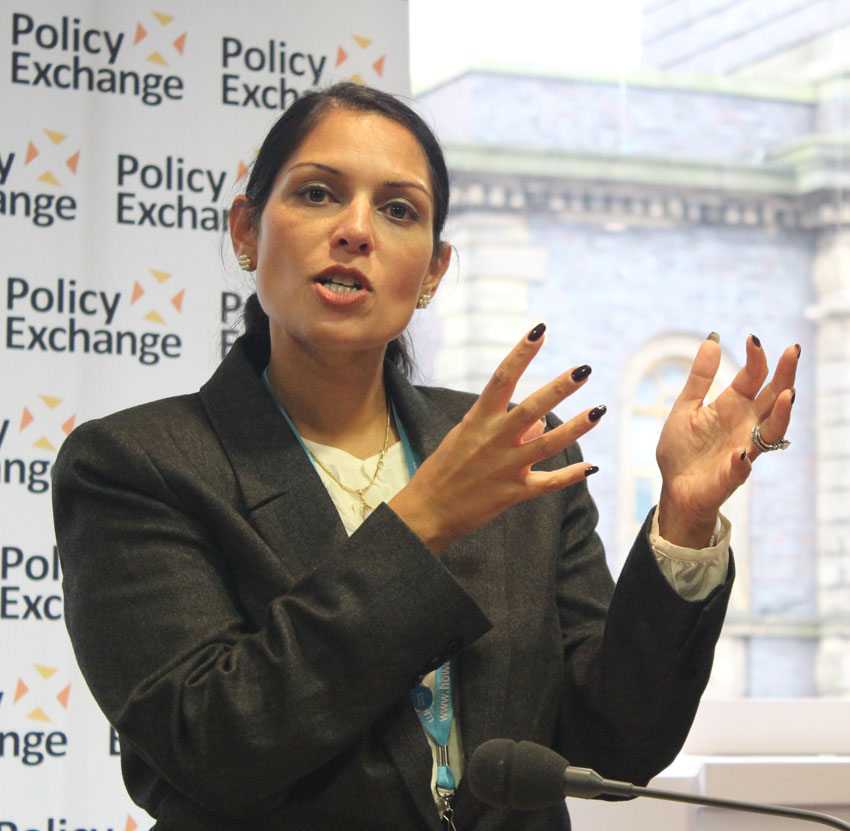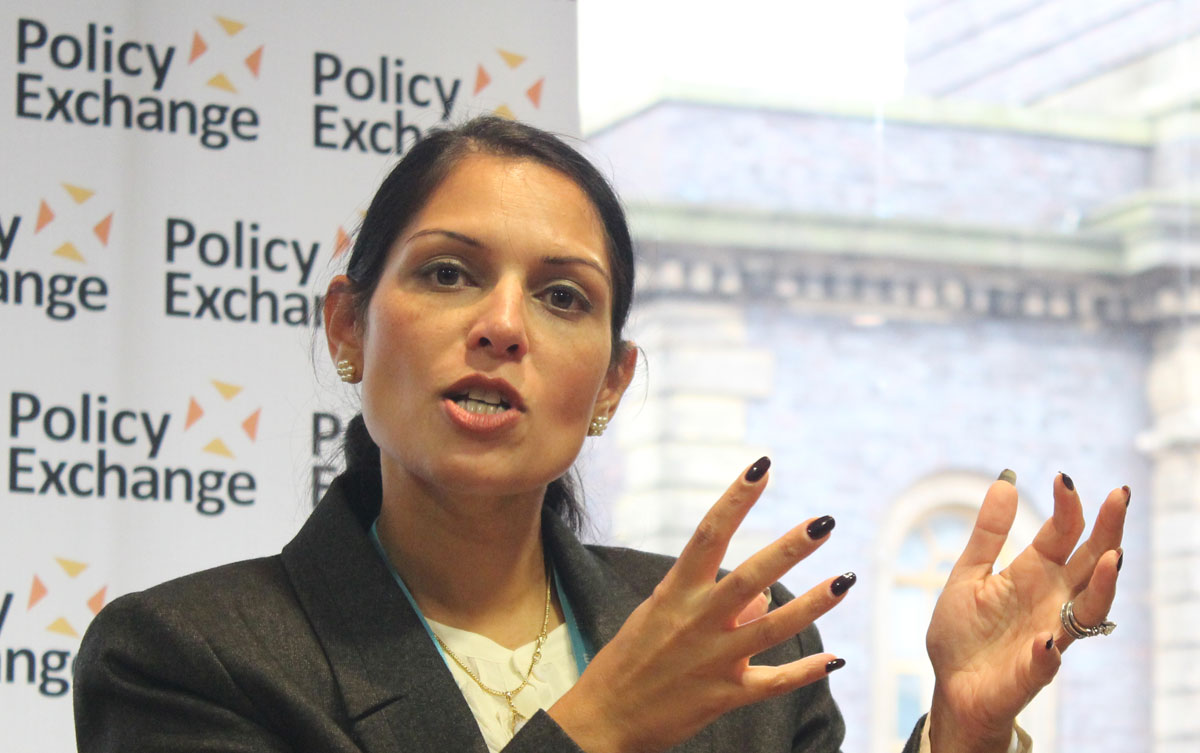CABINET RANK FOR PRITI PATEL

British Prime Minister David Cameron promoted one of Britain’s most prominent Indian-origin MPs, Priti Patel, by making her the new Employment Minister, as he unveiled the first all-Conservative Cabinet in nearly 20 years with his top four aides retaining their previous portfolios, in London, May 11. A PTI report by Aditi Khanna.
The senior-most berths in the Cabinet were confirmed soon after the election results were out with Chancellor George Osborne, Home Secretary Theresa May, Foreign Secretary Philip Hammond and Defense Secretary Michael Fallon being re-confirmed in their respective posts.
Priti Patel, who was re-elected from Witham in Essex with a big majority in the May 7 general elections, replaces another female MP in the Cabinet, Esther McVey, who lost in the polls.
“A real privilege to be appointed as Minister of State for Employment at the Department for Work and Pensions,” the 43-year-old said in a Twitter message.
While the London-born mother of one will not be in charge of the Department for Work and Pensions, she has been given a Cabinet rank as a promotion from her previous role as Exchequer Secretary to the Treasury.
It remains to be seen if she will also carry on in her honorary role as the British Prime Minister’s Indian Diaspora Champion.
Her appointment reflects Cameron’s plans to shake up the party’s old-fashioned all-male image and have a significant number of women around the Cabinet table.
Other women members of the new Cabinet are Amber Rudd as Energy and Climate Change Secretary, Liz Truss as Secretary of State for Environment, Food & Rural Affairs, Anna Soubry as Minister of State (Minister for Small Business), Justine Greening as Secretary of State for International Development, Theresa Villiers as Secretary of State for Northern Ireland and Baroness Stowell, who has been promoted to the Cabinet as Leader of the House of Lords.
Cameron had already confirmed Nicky Morgan in her previous post as Secretary of State for Education and Minister for Women and Equalities.
Jeremy Hunt will continue as Health Secretary and Patrick McLoughlin continues as Secretary of State for Transport.
Greg Clark replaces Eric Pickles as Secretary of State for Communities and Local Government.
Key announcements today included the son of a Pakistani bus driver, Sajid Javid, moving from Culture Secretary to Secretary of State for Business and London Mayor Boris Johnson being given a ministerial rank without a portfolio.
Johnson, widely seen as a Conservative party leadership contender, will attend Political Cabinet until he completes his term as mayor in 2016 when he is expected to be given an official portfolio.
Cameron said: “Boris Johnson will be attending my Political Cabinet. As promised, he will devote his attention to his final year as Mayor of London.”
Iain Duncan Smith, often referred to by his initials IDS, will be Patel’s boss as the Work and Pensions Secretary and veteran Tory MP John Whittingdale is to become Secretary of State for Culture, Media and Sport.
Most of the main ministerial announcements have now been made, with some junior appointments likely in the coming days.
Osborne also earned an honorific title of first secretary of state, which formally indicates his seniority over other ministers.
Cameron moved Michael Gove from his post as Conservative party chief whip to Justice Secretary.
Former immigration minister Mark Harper takes over as party chief whip and Parliamentary Secretary to the Treasury.
Chris Grayling, previously justice secretary, takes over as Lord President of the Council and Leader of the House of Commons.
The Conservatives won a slim majority in the House of Commons in this year’s elections, taking 331 of the 650 seats, which freed them of the need for any coalition considerations of the past opening up a number of Liberal Democrat Cabinet posts to fill.
Cameron attended the influential 1922 Committee, May 11, which is the Conservative Party MPs private committee where all MPs get to voice their opinions to the party leader.
Cheering members banged their desks to welcome his success in securing the first Conservative parliamentary majority since the 1992 election. “We will have a ministry of all the talents,” the prime minister said of his new cabinet.
Meanwhile, the Opposition Labour party also unveiled its shadow Cabinet which lacks any Asian-origin MPs after Pakistani-origin Sadiq Khan declined to continue as shadow justice secretary ahead of his bid for London mayor to succeed Boris Johnson.
Labour’s deputy chair, acting leader Harriet Harman, made the announcement while the party continues to await nominations for a successor to Ed Miliband who resigned after the party’s humiliating drubbing at the polls last week.
Chris Leslie replaces Ed Balls as shadow chancellor while Hilary Benn becomes shadow foreign secretary, succeeding Douglas Alexander. Ian Murray, the party’s only Scottish MP, becomes shadow Scottish Secretary.
The likely leadership candidates to replace Miliband — Andy Burnham, Yvette Cooper and Chuka Umunna — will all continue in their jobs shadowing health, home affairs and business respectively.


